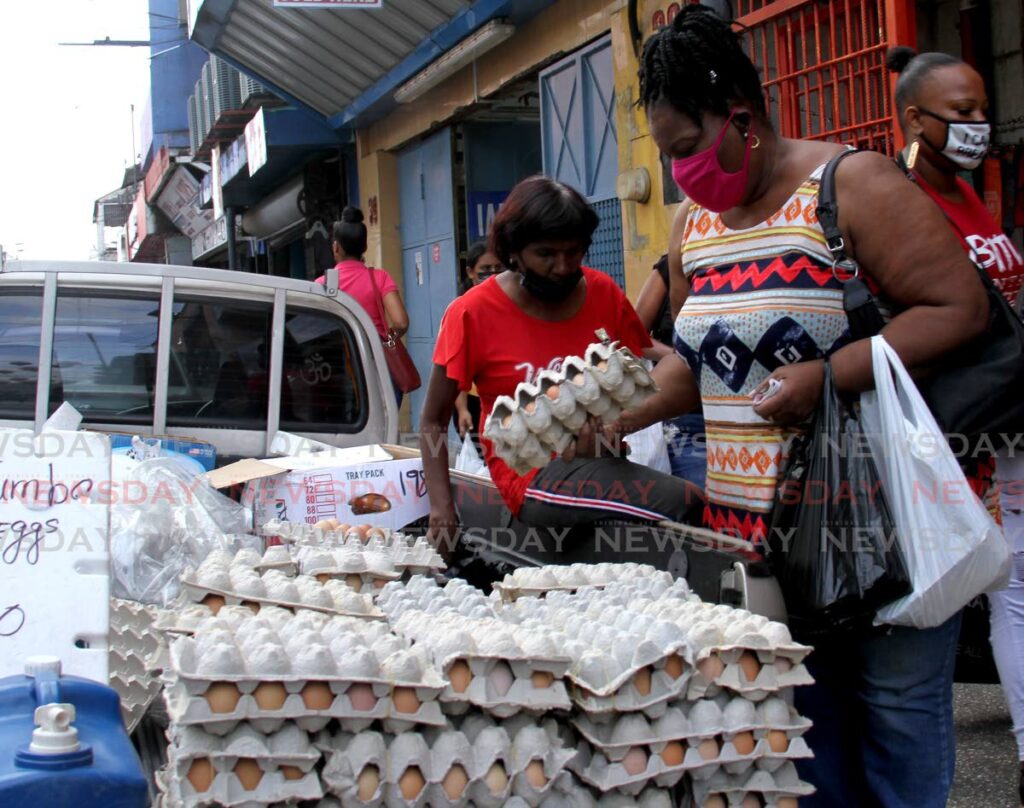Egg producers' VP to government: Be more proactive in monitoring feed prices

While government continues to analyse and deliberate on means to mitigate the rise in the price of eggs, Association of TT Table Egg Producers Dennis Ramsingh is calling on government to be more proactive when monitoring global prices of products needed for local manufacturing.
“I am always on the ball, checking grain prices,” Ramsingh said.
He said he was aware of the worldwide increases in prices in grain and said increases along the value chain were inevitable, but when the prices of feed increased in 2021, the government did nothing.
“When prices increased in February, I tried many ways through the government (to highlight the possible effects), but government said the moves were from the private sector and it didn’t have much control over it. You can’t tell them what price to sell, but by saying it was a private-sector move, the private sector was allowed to do what they want.”
He said government can have some control over the prices of feed, as these companies benefit from duty-free and tax-free imports, and the majority of the inputs for feed are imported.
He added that when prices were low, there was no reflection of that in the price of feed.
“Between 2018 and 2020 the price of feed was low, but there was no reduction in price,” he said. “Have you ever seen prices go down in TT? Nothing goes down.”
On Saturday, the association announced it would increase its suggested wholesale prices across TT by ten per cent with immediate effect.
Ramsingh said the price increase came as an effect, in part, of the increase in feed prices by over six per cent on Monday. He added that there were additional increases to costs along the value chain which included a five per cent increase in chicks and additional increases in freight; increases in vaccines, medication and vitamin supplements; an increase in plastic packaging by almost 20 per cent; an increase in cartons and boxes by almost 100 per cent; increases in vehicular maintenance and housing maintenance by 100 per cent; and increases in litter and sawdust.
Supermarket Association of TT president Rajiv Diptee said increases to costs for table-egg producers were such that they simply could not be absorbed and the phenomenon is also mirrored in imports.
He suggested that government focuses on access to foreign exchange for food security through EximBank while ensuring equitable access for suppliers of goods on the critical items list.
“Food security continues to be a matter of high priority,” he said. “What is taking place upstream eventually finds itself affecting downstream eventually finds itself affecting downstream operations.”
He said stores have not formalised price increases yet, but that will take effect as soon as stores have to pay higher prices to suppliers.
“The frequency of price increases, while alarming, is an aftershock of just how much the war in Europe has shaken global food security.”
Diptee noted that eggs already benefit from being in the zero-rated category and are therefore already VAT-free.


Comments
"Egg producers’ VP to government: Be more proactive in monitoring feed prices"